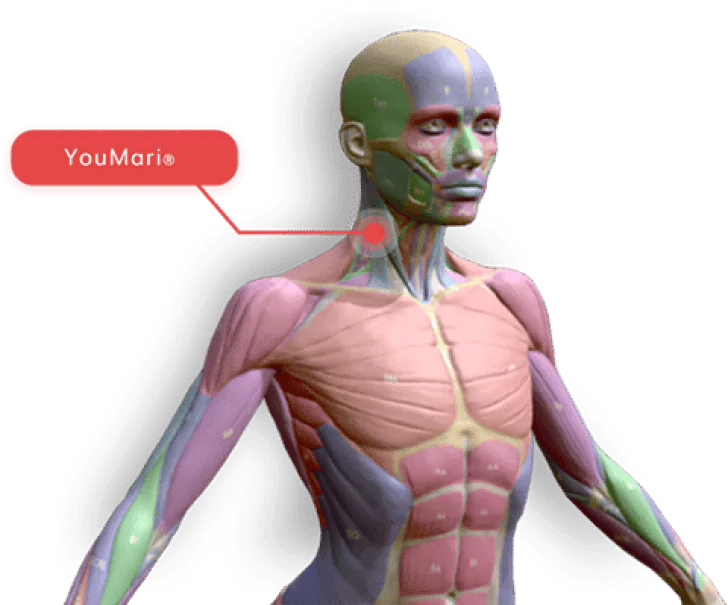Discover advanced, personalized solutions for adults, children, and youth that optimize overall health, improve performance, and promote long-term wellness—delivered in our clinics, at home, or onsite.
Brain and body performance refers to the ability to function at your highest potential, both physically and mentally. This includes cognitive clarity, emotional balance, physical endurance, and overall vitality.
Performance can be affected by factors like genetics, biochemistry, inflammation, stress, and lifestyle choices. Optimizing performance requires identifying and addressing these underlying factors to unlock the body’s full potential and ensure sustainable health and wellness for all ages.


We combine cutting-edge diagnostics with regenerative therapies to create a comprehensive, personalized plan for optimizing brain and body performance. Using MIT AI technology, DNA analysis, and gut health assessments, we uncover the root causes of performance barriers and address them with precision treatments that enhance cognitive and physical abilities.
Our therapies are designed to reduce inflammation, improve cellular health, and strengthen the mind-body connection for sustainable, long-term results.

Experience hands-on care and advanced regenerative therapies in a relaxing, state-of-the-art environment.
Continue your healing journey with easy-to-use devices designed for at-home therapy.
Bring regenerative medicine to your workplace, improving employee health and productivity.
Our Regenerative Therapies our Not the Alternative, they are the
BEST CHOICE
We are committed to personalizing treatment plans based on what is best for every individual’s UNIQUE circumstances to include symptoms, budget, lifestyle, and goals. Conservative (non-pharmaceutical) care is often effective in resolving the symptoms of poor brain and/or body performance.

We will review your health history, symptoms, and current lifestyle habits for nutrition, sleep, stress and exercise. We may recommend testing and analysis to get a full picture of potential therapies personalized to you.
We will present a treatment plan that includes only those therapies proven to be effective in treating your brain and body. This may include comprehensive lab testing and AI analysis to find the root causes of any imbalance. Additional options include DNA nutrigenomics analysis for lifestyle design, food sensitivities, and other therapies to resolve issues causing brain fog, low energy, poor sleep, weight gain or loss and pain among many other conditions that affect performance and function. You will be provided with treatment plan options and timelines with transparent out of pocket costs to you.

Integrative and regenerative medicine offers various therapies to enhance brain and body performance, contributing to overall health. Here’s an overview of some therapies and related studies:
Shockwave Therapy (Extracorporeal Shock Wave Therapy) is used for musculoskeletal issues and has potential benefits for overall health and performance.
ESWT improves circulation and reduces pain and inflammation, which can aid in recovery and overall physical performance.
Red Light Therapy (Low-Level Laser Therapy) utilizes specific wavelengths of light to stimulate cellular repair and reduce inflammation.
Red light therapy enhances cellular function, reduces inflammation, and improves recovery time, supporting better brain and body performance.
Inflammation Programs focus on dietary adjustments, supplements, and lifestyle changes aimed at reducing chronic inflammation.
By reducing systemic inflammation through diet and lifestyle, these programs can enhance energy levels, cognitive function, and physical performance.
Bioidentical Hormone Replacement Therapy addresses hormonal imbalances that can affect overall health and performance.
BHRT can balance hormones that regulate metabolism, mood, and energy levels, supporting enhanced brain function and physical performance.
Neuro Inflammation Programs target inflammation in the brain, which can impact cognitive function and overall health.
These programs reduce inflammation in the nervous system, potentially improving cognitive function, mood, and overall brain health.
Hands-On Medical Massage involves therapeutic techniques to reduce muscle tension, improve circulation, and alleviate pain.
Medical massage helps in muscle recovery, reduces tension, and enhances circulation, which can improve physical performance and overall well-being.
Sleep Programs aim to enhance sleep quality, which is crucial for overall health, performance, and recovery.
Improving sleep quality through targeted programs can enhance cognitive function, physical recovery, and overall health, thereby improving performance.
Integrative and regenerative therapies for improving brain and body performance include:
Integrating these therapies into a holistic approach can support optimal brain and body performance, leading to enhanced overall health and well-being.
Shockwave Therapy (ESWT) is a non-invasive treatment that uses acoustic waves to promote healing in tissues and reduce pain.
ESWT improves circulation and reduces inflammation, which can aid in faster recovery from injuries, reduce chronic pain, and enhance physical performance.
Red Light Therapy (Low-Level Laser Therapy) utilizes specific wavelengths of light to stimulate cellular processes and reduce inflammation.
Red light therapy enhances cellular repair, reduces inflammation, and improves recovery times, which can boost both cognitive and physical performance.
Inflammation Programs involve dietary changes, supplements, and lifestyle adjustments designed to manage chronic inflammation.
By reducing chronic inflammation through diet and lifestyle, these programs can improve energy levels, cognitive function, and overall physical performance.
Bioidentical Hormone Replacement Therapy uses hormones identical to those the body produces to address imbalances that affect overall health and performance.
BHRT can correct hormonal imbalances, which can enhance mood, energy levels, and cognitive function, thereby supporting better performance and overall health.
Neuro Inflammation Programs focus on reducing inflammation in the brain, which can impact cognitive function and overall health.
These programs aim to reduce neuroinflammation, which can enhance cognitive function, mood, and overall brain health.
Hands-On Medical Massage involves therapeutic techniques to alleviate muscle tension, improve circulation, and reduce pain.
Medical massage helps relieve muscle tension, improve circulation, and reduce pain, which can enhance physical recovery and overall performance.
Sleep Programs focus on improving sleep quality through various interventions, which is crucial for overall health and performance.
Red Light Therapy (Low-Level Laser Therapy) utilizes specific wavelengths of light to decrease inflammation and promote tissue repair.
Enhancing sleep quality can lead to improved cognitive function, physical recovery, and overall health, supporting better performance.
These therapies can be integrated into a comprehensive approach to optimize brain and body performance and overall health.
Engage in regular mental exercises like puzzles and learning new skills, maintain a healthy diet, exercise regularly, and ensure adequate sleep. Social interaction and stress management also play crucial roles.
Foods rich in antioxidants, healthy fats, and vitamins are beneficial. Examples include blueberries, nuts, fish rich in omega-3 fatty acids (like salmon), and leafy green vegetables.
Sleep is vital for cognitive function, memory consolidation, and overall brain health. Adults should aim for 7-9 hours of quality sleep per night.
Yes, mental exercises like puzzles, reading, and learning new skills can help maintain and enhance cognitive function, particularly when combined with physical exercise and a balanced diet.
Chronic stress can impair cognitive function and increase the risk of mental health issues. Managing stress through techniques like mindfulness, meditation, exercise, and counseling can mitigate these effects.
Combine a balanced diet with regular physical activity. Focus on sustainable lifestyle changes rather than quick fixes, and consult with healthcare professionals for personalized advice.
Aim for at least 150 minutes of moderate-intensity aerobic exercise or 75 minutes of vigorous-intensity exercise per week, along with muscle-strengthening activities on two or more days per week.
Strength training helps build muscle mass, improve bone density, enhance metabolic rate, and increase functional fitness. It also supports joint health and reduces the risk of injury.
Hydration is crucial for overall health and physical performance. The general recommendation is about 8 cups (64 ounces) of water per day, but needs can vary based on activity level, climate, and individual health conditions.
Regular exercise, a balanced diet with adequate nutrients, proper hydration, and good sleep hygiene are essential for maintaining energy levels. Also, managing stress and taking regular breaks during work can help.
Focus on a balanced training regimen that includes strength, endurance, and flexibility exercises. Adequate rest, proper nutrition, hydration, and mental strategies like goal setting and visualization also play important roles.
Mental health can significantly impact motivation, focus, and overall performance. Addressing mental well-being through stress management techniques, counseling, and maintaining a positive mindset is crucial for optimal performance.
Prioritize regular physical activity by integrating it into your daily routine, such as using active commuting, short workouts, or scheduled exercise sessions. Time management and setting realistic goals can also help.
While some supplements may offer benefits, it’s best to consult with a healthcare provider. Emphasize a well-rounded diet and use supplements as an adjunct rather than a substitute for proper nutrition.
Signs of overtraining include persistent fatigue, decreased performance, mood changes, and increased risk of injuries. Avoid overtraining by incorporating rest days, varying your workouts, and listening to your body’s signals.
Our program is designed to help individuals optimize their cognitive and physical performance by addressing the root causes of health challenges, such as inflammation, hormonal imbalances, and genetic predispositions.
The MIT AI technology analyzes your biochemistry to identify imbalances, such as nutrient deficiencies, hormonal disruptions, or inflammation, allowing for precise, personalized treatment plans.
Genetic testing identifies predispositions that impact metabolism, cognitive function, and physical performance, enabling tailored strategies to overcome these barriers.
PBM improves cellular energy production, reduces inflammation, and accelerates recovery, supporting both brain and body performance.
HIFEM therapy uses electromagnetic energy to stimulate muscle contractions, building strength and endurance while improving overall physical performance.
Gut health plays a critical role in nutrient absorption, immune function, and brain-gut communication. Optimizing gut health supports overall energy levels and mental clarity.
Many patients experience noticeable improvements in focus, energy, and physical endurance within a few weeks, with long-term benefits continuing over time.
Yes, our therapies are safe, non-invasive, and tailored to the unique needs of children, youth, and adults to ensure effectiveness and safety for all ages.
Yes, we offer at-home solutions like PBM and H2 devices, making it easy to continue your progress outside of the clinic.
Book a consultation with our team to assess your current health and performance goals. We’ll create a personalized plan to help you unlock your full potential.
See Plans & Pricing

Connect with us over our social platforms & find special deals for you!
© Copyright 2025. All rights reserved.